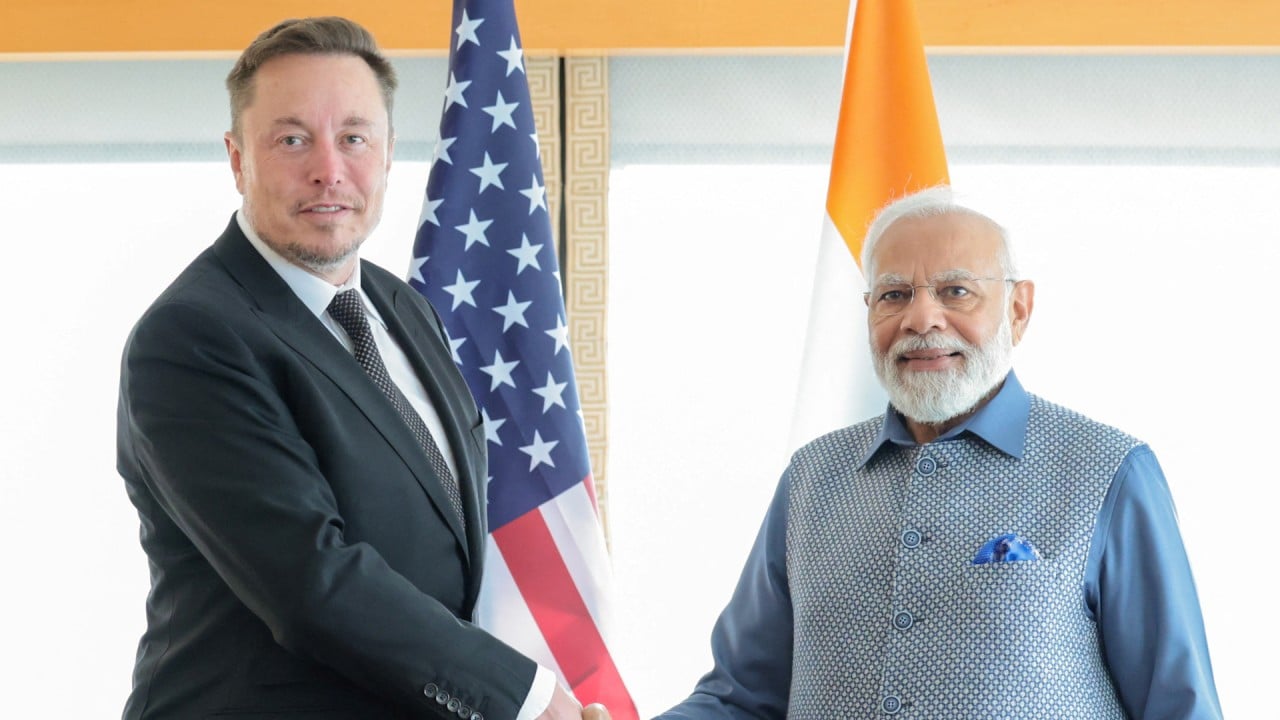Companies that meet these requirements will be allowed to import a limited number of EVs at a lower tax of 15 per cent on cars costing US$35,000 and above. India currently levies a tax of 70 per cent or 100 per cent on imported cars and EVs, depending on their value.
“The policy is designed to attract investments in the e-vehicle space by reputed global EV manufacturers,” the commerce ministry said in a statement.
Tesla gains speed in India EV race as China’s BYD gets throttled
Tesla gains speed in India EV race as China’s BYD gets throttled
India’s high tax regime has prevented Tesla from selling cars in the nation, something Chief Executive Officer Elon Musk has pointed out. For Tesla, breaking into the world’s most-populous nation, where aspirational middle-class consumers are taking to electric vehicles, would be a potential boon.
Musk last year said Tesla will make a “significant investment” in India, and he intends to visit the country in 2024. He also sees potential in the country for sustainable power generation through solar and wind, and energy storage in stationary batteries.
The objective of the new policy is to “strengthen the EV ecosystem by promoting healthy competition among EV players leading to high volume of production, economies of scale, lower cost of production,” the commerce ministry said.
EV imports at a lower rate will be allowed for a maximum of five years, and the total number will be capped at 8,000 a year.
The duty foregone by the government on the total number of EVs allowed for import would be limited to the investment made by the company or close to US$800 million, whichever is lower.
Additional reporting by Bloomberg


